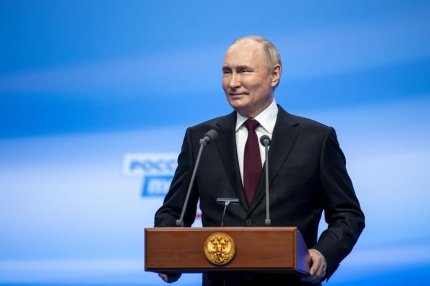As analysts from the Institute for the Study of War (ISW) note, the State Duma committee of the aggressor country allowed Kremlin dictator Vladimir Putin to impose restrictions on Russians' access to information.
Points of attention
- Putin has been granted full control over the Russian information space, enabling him to impose restrictions on access to information for Russian citizens.
- The new legislative amendments empower Roskomnadzor to manage communication networks and delete 'forbidden' information, making Putin the arbiter of permitted behavior and ideals in the Russian information space.
- The restrictions on access to information in Russia are aimed at controlling the behavior of migrants and appeasing the ultra-nationalist community, rather than combating Islamic extremism.
- These restrictions raise concerns regarding free speech control, democracy, and the potential manipulation of information for political purposes in Russia.
- Analysts emphasize the importance of understanding the broader implications of allowing such restrictions on access to information for Russian citizens.
What is known about Putin gaining complete control over the Russian information space
Analysts note that the Kremlin dictator gained complete control over the Russian information space due to the amendments made to the law "On Communications.
The final adoption of these amendments will allow Putin to impose restrictions on Russians' access to information for the purported purpose of "protecting the foundations of the constitutional order, morality, health, rights and legitimate interests of others, ensuring the country's defense and state security."

The approved amendments will also give Russia's federal censor Roskomnadzor the right to manage communications networks and delete "forbidden" information at the request of the Russian Prosecutor General and his deputies.
If these amendments are put into effect, Putin "will become the direct arbiter of what behavior and ideals are permitted or prohibited in the Russian information space," ISW analysts explain.
What are the restrictions on access to information in Russia?
It is noted that the criminal Russian authorities connect the suppression of the information space with attempts to control the behavior of migrants.
On July 29, the head of the Liberal Democratic Party, Leonid Slutsky, proposed introducing the "Migrant Code", which obliges migrants to integrate into Russian cultural, linguistic, legal and behavioral norms.
The bill approved earlier by the committee, which requires the de-anonymization of social media channels with more than 10,000 followers, also includes a separate provision limiting the ability of migrants to purchase more than 10 SIM cards per person.
ISW analysts emphasize that the Kremlin is doing this to appease the ultra-nationalist community, which largely supported the rebellion of former Wagner Group leader Yevgeny Prigozhin.
In addition, the mechanisms being created will assist the Ministry of Defense of the Russian Federation in forcing migrants to military service.
Instead, the goal of stopping the growth of the threat of Islamic extremism in Russia is not in front of the initiators of these changes.



